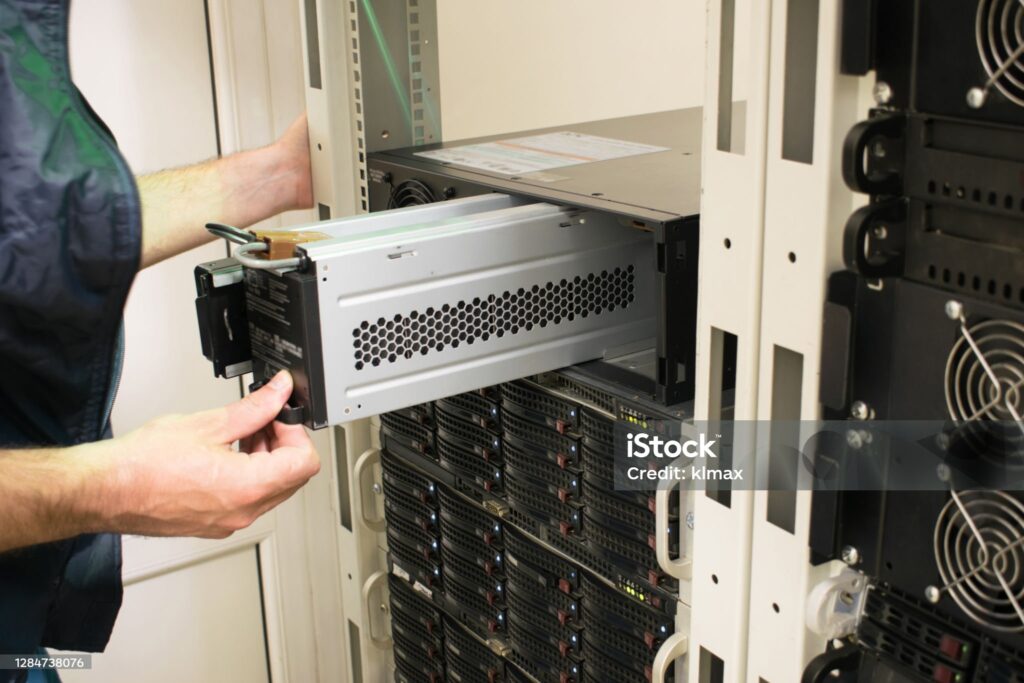- Offline (Standby) UPS – Provides basic backup power during outages and is suitable for home or small office use.
- Line-Interactive UPS – Regulates voltage fluctuations and offers better protection for computers and network devices.
- Online (Double Conversion) UPS – Delivers continuous, clean, and stable power, ideal for servers, data centers, and critical equipment.

What is a UPS and How Does It Work
Introduction
Nowadays, a power interruption can cause data loss, damage to sensitive equipment, and costly downtime. An uninterruptible power supply (UPS) acts as a superhero against these power disturbances. Let’s break down all things about a UPS, how it works, its application, benefits and importance.

What is an uninterruptible power supply (UPS)?
An uninterruptible power supply (UPS) is an electrical device that allows you to keep your electronic equipment functioning even when the power fails. It functions as a backup power source, kicking in when the main power supply fails. You know when you’re in the middle of a big project and suddenly the lights go out? That’s where a backup power supply comes in handy.
UPS systems vary in size and capacity, from small units for home computers to large, industrial-grade systems used in data centers and hospitals.
What is a ups and how does it work
Imagine you’re watching your favourite television show and the power goes out. Isn’t this frustrating? Well, a UPS has batteries that store electricity. So, when the power goes out, the UPS switches to using its batteries to keep everything functioning. It’s like having a hidden reserve of power that activates when you need it most.
Applications of UPS
UPS systems are used across a wide range of sectors, including:
- Home offices: Protecting computers, modems, and Wi-Fi routers.
- Data centers: Preventing data loss and hardware damage during outages.
- Medical facilities: Powering critical equipment in hospitals and clinics.
- Industrial settings: Ensuring smooth operation of automation and control systems.
Retail and banking: Supporting POS systems and ATMs during power cuts.
Types of UPS
UPS full form
The full form of UPS is Uninterruptible Power Supply. It is a device that provides backup power to electrical equipment when the main power source fails or fluctuates. A UPS ensures continuous operation of computers, servers, and other sensitive devices, protecting them from data loss, voltage spikes, and sudden shutdowns.
10 uses of UPS
Provides backup power during electricity outages.
Protects computers and servers from data loss.
Prevents hardware damage from power surges or spikes.
Keeps medical equipment running during power failure.
Ensures smooth operation of security systems and CCTV cameras.
Maintains network and communication equipment uptime.
Supports industrial machines and control systems.
Prevents damage to sensitive laboratory instruments.
Allows safe shutdown of systems during long outages.
Powers cash registers and POS systems in shops and businesses.
Importance of a UPS
A UPS is more than just a backup battery, it’s a critical protection. Here’s why it matters:
- Prevents data loss: Keeps computers and servers running long enough to save work or initiate a safe shutdown.
- Protects equipment: Shields sensitive devices from voltage spikes, surges, and brownouts.
- Reduces downtime: Ensures operations continue without disruption during short outages.
- Provides peace of mind: Especially in regions with unstable power supplies or frequent blackouts.
Conclusion
Although power outages are unavoidable, they don’t have to have negative effects. Installing a UPS gives you protection from fluctuations and outages that would otherwise harm your machinery, contaminate data, or disrupt your operations.
Choose from Borri’s dependable 1-phase and 3-phase uninterruptible power supplies (UPS) based on your demands. Contact us today, and we will help you find the best solution for your needs.
FAQs
+
-
What does a UPS do during a power outage?
A UPS instantly switches to battery power during an outage, keeping your devices running long enough to save work or safely shut down.
+
-
Who needs a UPS system?
UPS systems are essential for anyone relying on electronics, including home users, offices, data centers, hospitals, factories, and banks, to protect against data loss and equipment damage.
+
-
What is an UPS used for?
A UPS (Uninterruptible Power Supply) is used to provide backup power during electrical outages or fluctuations. It keeps computers, servers, and other critical devices running temporarily, preventing data loss and equipment damage until normal power is restored or a generator starts.
+
-
Is UPS a battery?
A UPS is not just a battery, but it contains batteries as part of its system. It combines batteries with electronic circuits that instantly provide power when the main electricity fails, ensuring connected devices keep running without interruption.
+
-
What do UPS do?
A UPS (Uninterruptible Power Supply) provides backup power when the main electricity fails or fluctuates. It protects devices from power interruptions, voltage spikes, and surges, ensuring that computers, servers, and sensitive equipment continue running safely and without data loss.


 العربية
العربية

